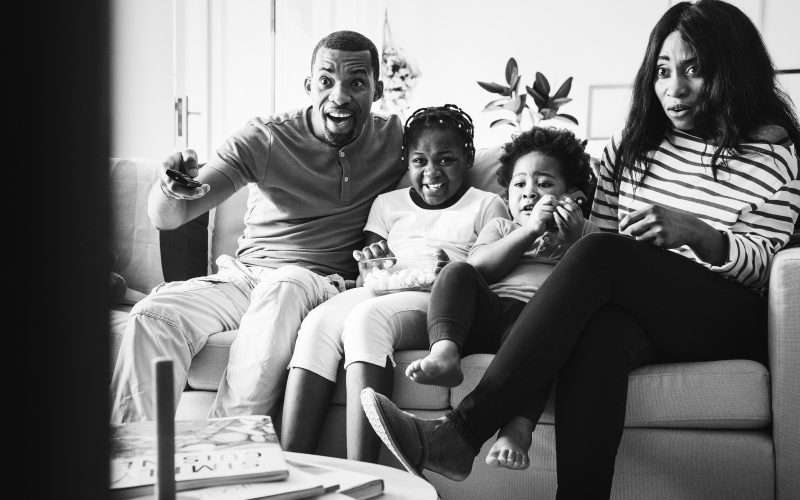Marriage is a beautiful union, but it is not without its fair share of challenges and conflicts.
When wounds occur in a marriage, whether through betrayals, misunderstandings, or disagreements, they leave lasting scars if not properly resolved.
However, forgiveness has the potential to heal these wounds and restore the love and trust that may have been damaged.
In this article, we will discuss what marital wounds are, the power of forgiveness in marriage, and how it can help couples navigate through difficult times.

What are Marital Wounds?
Marital wounds are the emotional scars that can emerge in any marriage. They come in various forms, from everyday disagreements to more significant betrayals.
These conflicts are entirely normal and occur in even the strongest relationships. It’s crucial to understand that they don’t signify a failing marriage but rather are a part of the journey.
Marital wounds are like small thorns, which may not seem like much initially but, if ignored, can fester and cause pain.
The Weight of Unforgiveness in Marriage
Picture unforgiveness as a heavy backpack, and Inside that backpack are grudges, resentments, and unresolved conflicts.
Over time, this baggage becomes a concern, affecting not just your emotional well-being but also the overall health of your relationship. It leads to distance and communication breakdowns, making it harder to find common ground with your partner.
The Transformative Power of Forgiveness
Forgiveness can sometimes be misunderstood as a sign of weakness, but it’s quite the opposite. It’s a powerful act of strength and love.
When you forgive, you’re not saying that what happened is okay; instead, you’re choosing to let go of the anger and resentment that’s holding you back. Think of it as opening a window to let in fresh air.
Forgiveness transforms your marriage by releasing you from the grip of the past. It’s like giving both partners a chance to start afresh with a lighter heart and a renewed commitment to each other.
How to Forgive in Marriage
1. Engage in self-reflection
Start by looking within yourself. Acknowledge your own feelings and emotions related to the conflict.
Understand that it’s okay to feel hurt or angry, but also recognize the importance of moving forward. Self-awareness is the first step towards forgiveness.
2. Communicate with your spouse
Sit down with your partner and have an open conversation. Share your feelings and perspectives without blame or accusation.
Use “I” statements to express your emotions, like “I felt hurt when…” rather than “You hurt me when…” This approach encourages a more constructive dialogue.
3. Listen actively
Equally important is listening to your partner’s side of the story. Try to understand their point of view, even if you disagree.
Active listening shows empathy and a willingness to see the situation from their perspective. It’s like creating a bridge of understanding.
4. See things from your spouse’s perspective
Put yourself in your partner’s shoes. Try to feel what they might have felt during the conflict.
Empathy and compassion are like the glue that holds the pieces of a broken trust back together. It’s about truly caring about your partner’s feelings and experiences.
5. Take Responsibility When Necessary
If you played a role in the conflict, acknowledge it. Apologize sincerely if your actions or words hurt your partner.
Taking responsibility is a powerful act of humility and can go a long way in the forgiveness process.
6. Set boundaries
Forgiveness doesn’t mean you have to forget or condone hurtful actions. It’s essential to establish healthy boundaries to prevent similar conflicts from happening again.
7. Be patient
Understand that forgiveness takes time. Healing deep wounds is not an overnight process.
Be patient with yourself and your partner as you navigate through this journey together. Time is the gentle healer that gradually mends the emotional scars.
8. Practice gratitude
Cultivate a sense of gratitude for the positive aspects of your relationship. Focusing on what you appreciate about your partner can soften the edges of past conflicts and make forgiveness more attainable.
9. Seek Professional Help if Needed
Sometimes, forgiveness can be challenging, especially in complex situations.
Don’t hesitate to seek the guidance of a marriage counselor or therapist. They can provide you with valuable tools and strategies to navigate through the forgiveness process effectively.

Effects of Forgiveness on Marriage
When you embrace forgiveness in your marriage, its positive impact extends far beyond the act itself. You’ll find yourselves closer, more connected, and better equipped to face future challenges together.
Forgiveness not only heals old wounds but also fortifies your bond for the journey ahead. It is the catalyst for creating an environment where love, respect, and understanding can thrive.
Conclusion on the Power of Forgiveness in Healing Marital Wounds
Forgiveness is the soothing ointment that heals the wounds of a marriage. It is a powerful tool that can transform the future of your marriage, paving the way for a brighter tomorrow filled with love and harmony.
So, when faced with marital wounds, keep in mind the incredible transformation that forgiveness can bring and try as much as you can to follow its path.
The Effects of Childhood Abuse, Neglect, and Family Dysfunction on Marital Quality
Our experiences as kids can affect how we handle romantic relationships as adults. From our parents’ relationship to our family dynamics, childhood experiences impact our approach to marriage.
But do childhood experiences affect marriages? Read this article to find out!















